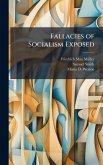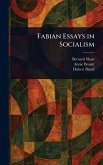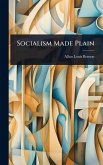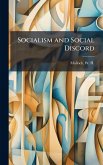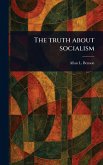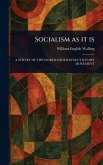What Is Socialism? presents a fascinating historical document: a verbatim transcript of a public debate held in Bristol in January 1841 between Robert Owen, a pioneering figure in utopian socialism, and Mr. John Brindley, a vocal opponent of Owenâ(TM)s social and economic theories. This record offers a unique window into the ideological clashes of the early 19th century, capturing the nuances of Owenâ(TM)s arguments for a cooperative and egalitarian society and Brindleyâ(TM)s criticisms. Before a large audience, Owen articulates his vision for a transformed society, outlining the practical effects of his socialist principles. Brindley challenges these ideas, raising concerns and offering alternative perspectives. This book provides invaluable insights into the historical context of socialist thought and the challenges faced by early proponents of social reform. Students and scholars of political science, history, and sociology will find this a compelling resource for understanding the roots of modern socialist movements. This work has been selected by scholars as being culturally important, and is part of the knowledge base of civilization as we know it. This work was reproduced from the original artifact, and remains as true to the original work as possible. Therefore, you will see the original copyright references, library stamps (as most of these works have been housed in our most important libraries around the world), and other notations in the work. This work is in the public domain in the United States of America, and possibly other nations. Within the United States, you may freely copy and distribute this work, as no entity (individual or corporate) has a copyright on the body of the work. As a reproduction of a historical artifact, this work may contain missing or blurred pages, poor pictures, errant marks, etc. Scholars believe, and we concur, that this work is important enough to be preserved, reproduced, and made generally available to the public. We appreciate your support of the preservation process, and thank you for being an important part of keeping this knowledge alive and relevant.
Bitte wählen Sie Ihr Anliegen aus.
Rechnungen
Retourenschein anfordern
Bestellstatus
Storno



